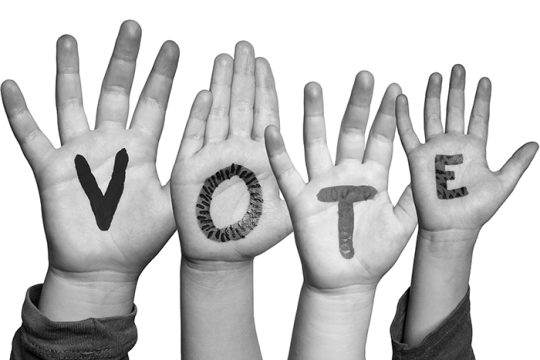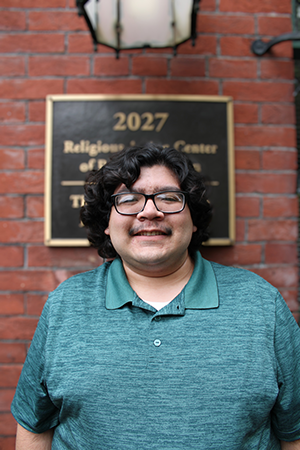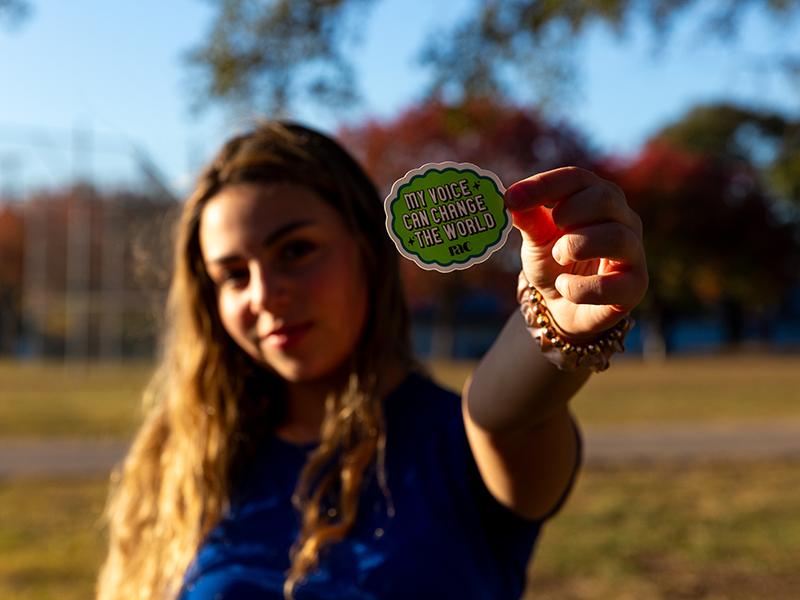
The RAC is proud to bring thousands of teens to Washington D.C, for our annual L'Taken Social Justice Seminars. After three days of intensive programming and learning about issues, participants travel to Capitol Hill to meet with their congressional representatives and advocate for issues they care about.
Originally, the right to vote in the United States was limited to wealthy, property-owning white males. Even as voting rights have expanded, many marginalized communities still face barriers at the ballot box.
As we approach Independence Day, we share this speech about voting rights written by Larkin B. and Noah F. from Congregation Emanu El in Houston, Texas. Larkin and Noah participated in a L'Taken Social Justice Seminar in early 2024 and shared these remarks with Representative Lizzie Fletcher (D-TX-7) and Senator John Cornyn (R-TX). May their leadership inspire our continued work to protect, expand, and strengthen our democracy.
Good morning. We're here to talk to you about voting rights and why it is so important to us. My name is Larkin, and this is Noah, and we are both in the senior class at Congregation Emanu El in Houston.
As Americans, the right to vote is central to our democracy. Thanks to this right, we are able to elect the officials who represent us and have the power to make public policy decisions that impact our daily lives. People's right to vote in the United States has been gradually expanding to include more categories of citizens, such as racial minorities and women. But as of now, not everyone has an equal ability to vote. The right to vote is meaningless unless the mechanisms devised to implement that right function justly for everyone. Elections lose legitimacy when eligible Americans do not have equal opportunity to vote. Anti-voter laws have restricted access to the ballot box by shortening voting periods, limiting Election Day registration, and making mail-in voting overly complicated and difficult. Impeding any citizen's right to vote through the implementation of complex and onerous voting requirements is deeply unfair. Most voting restrictions disproportionately harm the poor, Communities of Color, the elderly, young voters, new voters, and voters with disabilities.
The sage Hillel taught in "Pirkei Avot," "Al tifros min hatzibur - do not separate yourself from the community." As Reform Jews, we believe that to keep ourselves connected to the community, we are obligated to participate in its governance. In the United States, voting is the most important way for us to participate in that process.
In his final speech to the Israelites, Moses reminds us that Judaism envisions a world where all are valued, not just those with power or privilege. He invites everyone into a covenant that does not exclude, saying, "Atem nitzavim hayom kulchem - You stand this day, all of you, before the Eternal your God - you tribal heads, you elders, and you officials, all of the men of Israel, you children, you women, even the stranger within your camp… - to enter into the covenant of the Eternal your God" (Deuteronomy 29:9-11). This text teaches us that the right to engage in our democracy should be available to all eligible voters, regardless of race, class, or political affiliation. After all, the Talmud states that "a ruler is not to be appointed unless the community is first consulted" ( Brachot 55a). If voting restrictions that disproportionately impact poor and minority communities are implemented, then we, as Jews, cannot stand idly by. We must ensure that all eligible citizens in our community are consulted and afforded the opportunity to have their votes counted.
I care about voting rights because I've seen that it's harder than it should be to vote. Many people imagine they can simply show up at a voting center and vote, but sadly, it is not that straightforward. For the past few election cycles, our congregation has served as a polling place. I had the honor of being asked to be an election clerk. Most of my friends don't even know what that means, but I have gotten to see our democracy up close for three separate elections. Our congregation is right across the street from Rice University, and in the November 2022 election, many of the college students who came to our polling place did not know that they had to register to vote before Election Day. Therefore, they showed up to vote and were only able to vote provisionally. It disappointed me to know that their votes might not be counted even though they showed up and made the effort to do their civic duty. As a result of this, I realized that even though voting rights have come a long way, not everyone has equal access to vote.
The Freedom to Vote Act (S.1/H.R.11) would establish national standards for federal elections that collectively would create a transparent process that all Americans can trust. It will do this by increasing opportunities for eligible Americans to register to vote, expanding early in-person and mail-in voting, restoring voting rights to formerly incarcerated people, ending partisan gerrymandering, and modernizing American election systems to ensure an accurate count.
To Representative FLETCHER: We would like to thank our Representative Lizzie Fletcher for being one of the original cosponsors of the Freedom to Vote Act. We ask that you continue to support the bill and encourage leadership to bring it to a vote.
To Senator CORNYN: The passage of this bill and other voting right legislation has been historically blocked by the outdated use of the Senate filibuster. In order to pass the Freedom to Vote legislation, the filibuster must be reformed to allow for both dialogue and debate and prevent political stalemates. This includes, but is not limited to, restoring the "talking filibuster," eliminating duplicative filibuster opportunities, ending the practice of silent holds, expanding opportunities for the minority to offer amendments, and considering a lower number of senators needed to invoke cloture under certain circumstances. We urge you to support both the Freedom to Vote Act, and the filibuster reform if necessary, to protect the right to vote for all Americans.
As many of us celebrate the Fourth of July, urge Congress to pass the Freedom to Vote Act and join the Reform Movement's Every Voice, Every Vote campaign.
Related Posts
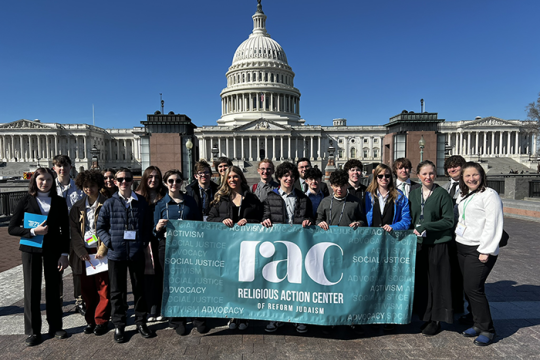
Highlights from the 2024-2025 L'Taken Season
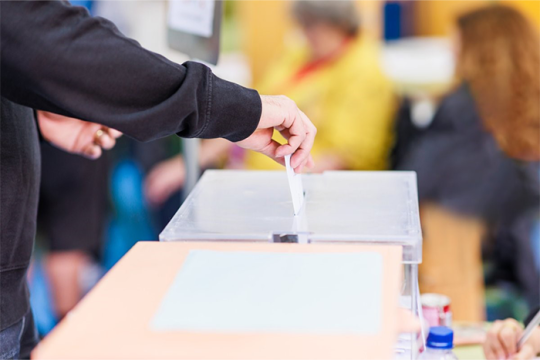
Ensuring Voices are Heard and Votes Counted
